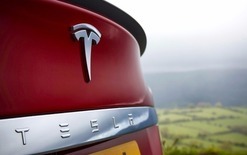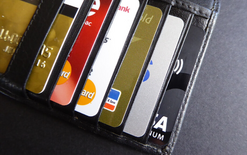Fuel levy may accelerate transition to EVs

Volvo's New Zealand General Manager, Coby Duggan, says an additional levy on the price of fuel would act as a de facto subsidy for EV’s - making them a more attractive financial proposition for car owners. “The decision to purchase an EV or hybrid is in part, an economic one for many buyers. “Kiwi motorists already contend with petrol prices which are among the highest in the OECD and as the cost of fuel increases, the appeal of this alternative energy source broadens to include more and more drivers. “We are already seeing a high uptake among passenger vehicles like taxis which spend a lot of time on the road each day and where the ratio of running costs to capital outlay of the vehicle is much higher. “A 20 cent per litre increase represents about a 10% increase in the fuel cost which means a driver that spends $130 per week in petrol currently would see this increase to $143 - around $7,436 per year. “It's estimated that an EV would cost around the equivalent of 30c per litre or about 13.5% of the running cost of an internal combustion engine (ICE) vehicle - when factoring in the proportional reduction as more fuel levies are added,” says Duggan. Jucy COO Dan Alpe says an increase in the price of fuel may make also NZ less attractive for tourists who tour the country long distances in petrol or diesel powered campervans as this can represent a significant proportion of their daily budget. “Overseas visitors who see the country by campervan could travel over 10,000 thousand KM per trip,” he says. Alpe says following a successful trial, the company expects to have a fleet of long range, electric campervans on the roads within 12-18 months. “As the cost of fuel increases, we expect demand for our new EV fleet to rise - we are testing the latest battery technology at the moment to ensure these vehicles can travel the distances between charging points around the country. “At the same time we are working with popular campgrounds to see more charging stations introduced. As the cost of travel here decreases and becomes more environmentally friendly, New Zealand becomes a more attractive destination for visitors,” he says. Duggan says while NZ currently does not directly subsidise new EV purchases, other markets around the world have introduced them and have seen the rate of ownership rise substantially. “In European markets which offer a range of EV ownership incentives such as tax deductions, free public parking, exemption from toll charges, access to bus lanes, exemption from ferry fees, and free charging on public charging points, as many as one in every two new vehicles purchased is electric,” he says. In New Zealand only 1-2 per cent of new vehicles purchased is a hybrid or fully electric vehicle. Duggan says Volvo Cars recently announced all new models introduced from 2019 onwards will feature an electric motor, offering a range of hybrid and fully electric alternatives and becoming the first major car manufacturer to make the transition.





